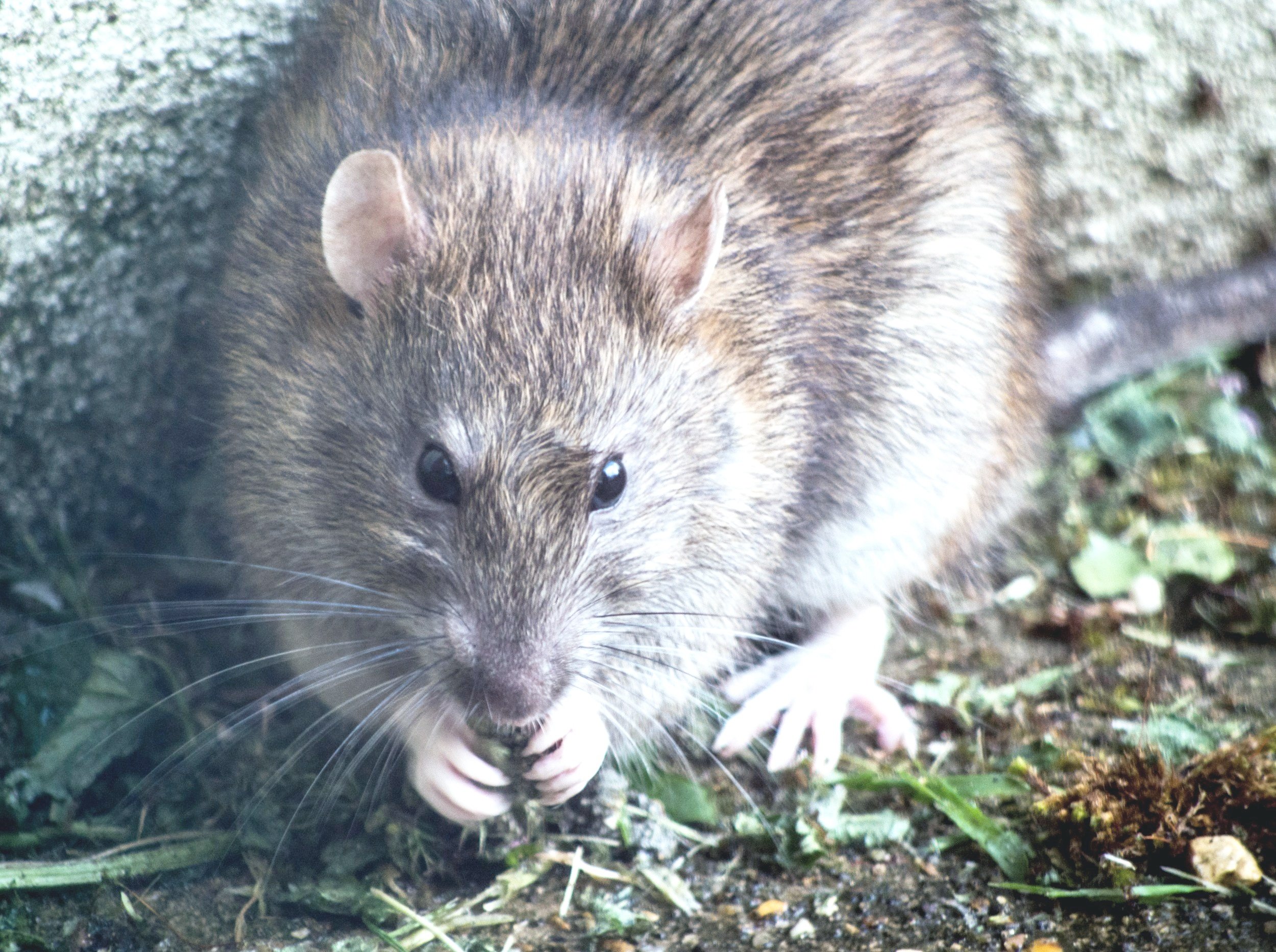Membership # 0310611
Professional, licensed. fully trained and insured rodent and pest control services
using the most up to date professional and humane methods of eradication.
VRC PEST CONTROL

Our Services
Rat Eradication
Call for prices
Sadly more and more farms, buisnesses and even residential properties are being infested by rats and mice these days. Wild rats can be harmful as they carry diseases and parasites, contaminate food and water, and can cause damage to property.
Here's a more detailed explanation of the potential harms:
Health Risks:
Disease Transmission:
Wild rats are known to carry bacteria, viruses, and parasites that can be transmitted to humans through bites, scratches, or contact with their droppings, urine, or saliva.
Specific Diseases:
Hantavirus Pulmonary Syndrome (HPS): A potentially fatal respiratory illness contracted by breathing in dried, aerosolized rodent urine or feces.
Leptospirosis: A bacterial infection spread through contact with contaminated water or urine.
Rat-bite fever: A bacterial infection caused by a bite or scratch from a rat.
Salmonellosis: A bacterial infection spread through contaminated food or water, often linked to rat droppings.
Plague: Although less common, rats can carry the bacteria that cause plague, which is transmitted by fleas.
Allergies:
Exposure to rat droppings and urine can trigger allergic reactions in some individuals.
Property Damage:
Gnawing:
Rats have strong teeth and continuously gnaw to wear them down, which can lead to damage to buildings, wires, and other materials.
Nesting:
Rats build nests in walls, under floors, and in other areas, which can cause structural damage and attract other pests.
Food Contamination:
Rats contaminate food and water sources with their droppings and urine, posing a health risk.
Other Risks:
Bites:
While not always aggressive, wild rats may bite when they feel threatened or are trying to defend their territory or young.
Prey on Small Pets:
Rats can pose a threat to small, outdoor pets and will sometimes prey on them.
Ecological Impact:
Rats can compete with native species for resources and can damage ecosystems.
Pigeon Eradication
Call for prices
While feral pigeons can be a nuisance and pose some risks, the potential health hazards they present to humans are generally low, with the risk of disease transmission being relatively rare, according to ScienceDirect.
Here's a more detailed breakdown:
Potential Health Risks:
Disease Transmission:
Pigeons can carry various pathogens, including bacteria, viruses, and fungi, some of which can cause diseases in humans.
Examples include histoplasmosis, cryptococcosis, and psittacosis, which can be contracted by inhaling dust containing pigeon droppings.
However, the risk of contracting these diseases from pigeons is generally low, especially for the general population.
Individuals with weakened immune systems may be at a higher risk.
Allergies:
Pigeon droppings, feathers, and nesting materials can trigger allergic reactions in some people, including respiratory problems.
Nuisance and Damage:
Pigeon droppings can be unsightly and acidic, causing damage to buildings and infrastructure.
They can also block gutters, rainwater pipes, and other areas.
Pigeon nests and debris can create hazards, such as making ladders and fire escapes slippery.
Other Rodent eradication
Call fo prices
Besides rats and mice, other harmful rodents that can spread diseases or cause property damage include squirrels, lemmings, voles, and certain species like the cotton rat and rice rat, which are known carriers of hantavirus.
Here's a more detailed look at some of these rodents and their potential risks:
Rodents and Disease:
Rats and Mice: These are well-known vectors for diseases like leptospirosis, hantavirus, rat-bite fever, and lymphocytic choriomeningitis (LCMV).
Squirrels: Can carry diseases like tularemia and plague.
Cotton Rat and Rice Rat: Are known carriers of the hantavirus.
Deer Mouse: Is a common carrier of the hantavirus in North and Central America.
White-footed Mouse: Is another carrier of the hantavirus in the Northeast.
Other Rodents: Rodents, in general, can carry a wide range of disease-causing organisms, including bacteria, viruses, protozoa, and helminths (worms). They can also act as vectors for diseases via their ectoparasites such as fleas, ticks, lice, and mites.
Rodents and Property Damage:
Gnawing and Nesting: Rodents can chew through wires, insulation, and other materials in homes and vehicles, causing structural damage and electrical hazards.
Food Contamination: Rodents can contaminate food and water supplies, posing a health risk.
Nesting: Rodents can build nests in walls, attics, and other areas, further damaging property.
Our methods
As the use of rat and rodent poisons can be highly lethal to other wild animals, and more especially to children and pets, I am please to confirm that such methods of extermination are NOT, and never will be a method we eithe use or promote, and would NEVER advise ANYONE to use.
We only use the fastest and most humane methods in our work. By using the most up to date air powered firearms, using the most environmentally correct ammunitions which work fast and leaves virtually no carbon footprint.
Schedule your appointment
give us a call on 07472 493 490 to discuss your requirements and problems and we will be delighted to come and have a look at the issues.
About
our company
Our pest control services are backed by a team of certified experts committed to safeguarding your environment with precision and care. With years of industry experience, we deliver effective solutions tailored to your unique needs.
Contact Us
Interested in working together? Fill out some info and we will be in touch shortly. We can’t wait to hear from you!








